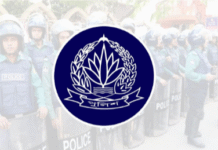The appeal hearing for Abdul Quader Molla took more than five months, but those of others including Delwar Hossain Sayedee and Mohammad Kamaruzzaman may take less time, Attorney General Mahbubey Alam said Tuesday.
The chief legal official was briefing the media in his office on Tuesday at the end of Abdul Quader Molla’s hearing.
He said appeal against the death verdict awarded to Jamaat-e-Islami executive council member Delwar Hossain Sayedee for war crimes is next in line for hearing.

“There were several legal matters in Quader Molla’s appeal. All those were heard. Amicus Curies gave their opinions. Now the Appellate Division will make a decision on the case.”
He was optimistic that the next set of appeals will be resolved more quickly.
Replying to a query about holidays Mahbubey Alam said : “There is a big holiday ahead for the Supreme Court. It is being considered whether or not a proposal should be made to continue the Appellate hearings during the holidays.”
According to the Supreme Court’s calendar the full bench of the Appellate Division will function for only one day in whole of August. The full bench of the Appellate division will be active for 12 days in September, 8 days in October, 19 days in November, 10 days in December.
The Appellate judges will be active for 29 days in November-December and 20 days in September-October.
The Supreme Court will go into annual holiday from Aug 4 to Sep 12. October will have holidays for Eid-Ul-Azha and Durga Pooja. December will have the usual winter vacation.
The Abdul Quader Molla war crimes case is now awaiting a verdict after the court finished hearing the appeals by prosecution and defence on Tuesday.
The Jamaat leader was sentenced to life in prison for murder and rape in two cases and acquitted in one. He got another 15 years in jail for complicity in three charges of murder.
But even as he was sentenced for life, there was confusion whether the prosecution would be able to appeal against the verdict.
The ‘lenient verdict’ fuelled protests across Bangladesh as thousands demanded death for the ‘Butcher of Mirpur’ – Molla’s popular adage for his involvement in war-time atrocities.
As the protests spread, the government amended the Act under which the war crimes trials were being conducted giving equal opportunity of appeal to both prosecution and defence.
Earlier, the prosecution could appeal in case of an acquittal but the defence could appeal in all circumstances.
On Jan 21, the International Crimes Tribunal-2 sentenced Abul Kalam Azad better known as ‘Bacchu Razakar’ to death. The former activist of Jamaat-e-Islami was absconding throughout his trial. He could not be arrested neither did he surrender. Thus his case never reached the point of appeal.
Large scale atrocities took place in places known as Jamaat strong holds after the ICT pronounced its third verdict for Delwar Hossain Sayedee. The government says more than 70 people including policemen lost their lives in the riots.
ICT-2 on Jun 6 ruled that Jamaat-e-Islami leader Mohammad Kamaruzzaman must die for the crimes he committed in 1971.
Jamaat-e-Islami guru Ghulam Azam was sentenced to 90 years in prison on Jul 15. Jamaat’s Secretary General and former leader of notorious militia force ‘Al-Badr’Ali Ahsan Mohammad Mujaheed was sentenced to death by the tribunal on Jul 17.
Sayedee and Kamaruzzaman’s appeals against the Tribunal’s verdicts come up for hearing next.
Source: Bd news24









